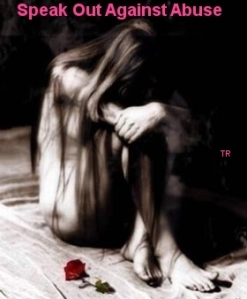“The emotionally abused woman was an emotionally abused child. While she may not recognize it, she has established an ongoing pattern of being abused by her lover or husband, her boss, her friends, her parents, her siblings, and even her own children. No matter how successful, how intelligent, or how attractive she is, she still feels “less than” other people. She may have taken assertiveness-training classes and yet still feels afraid to stand up for herself in her relationships. She is still victimized by her low self-esteem, her fear of authority figures, or her need to be taken care of by others. Although she has worked on herself through therapy, twelve-step programs, and/or self-help books, she often feels hopeless and increasingly critical of herself. She recognizes that despite her efforts to change, she seem to be unable to choose people who will treat her with respect and consideration.
If this sounds like a description of you, then you are an emotionally abused woman. Just what is emotional abuse? Emotional abuse can best be described as a process similar to brainwashing in that it systematically wears away at your self-confidence, sense of self-worth, trust in your perceptions, and self-concept. Whether this is accomplished by constant berating and belittling, by intimidation, or under the guise of so-called guidance or teaching, the results are similar. Eventually, you lose all sense of self and all remnants of personal value.
Many women suffer from the effects of emotional abuse – depression; lack of motivation; confusion; difficulty concentrating or making decisions; low self-esteem; feelings of failure, worthlessness, and hopelessness; self-blame; and self-destructiveness – hut do not understand what is causing these symptoms. Often women will come into my office wondering what is wrong with them. They’re depressed, they’re not performing the way they want to at work and with their children, they’ve lost their sex drive, they’re not taking care of themselves physically. As we talk, it becomes evident that someone in their life is emotionally abusing them.
Like many other women, you may not know that you are being emotionally abused. While you may realize that your husband, boyfriend, or boss seems to be demanding and hard to please, you may not consider his behavior abusive. Emotional abuse can be difficult to define. Unlike physical or sexual abuse, there is no physical evidence of the damage and there is no clear-cut definition of what is abusive and what is not. In addition, we all engage in emotionally abusive behavior from time to time, especially during arguments. So what exactly is emotionally abusive behavior?
The emotionally abusive person has an agenda, and that agenda is to be in control. He will therefore dominate, sup-press, tyrannize, persecute, and attempt to conquer anyone he relates to on a consistent basis. Among his repertoire of control tactics are insults, denigrating comments, threats, and constant criticism, along with an extensive array of other intimidating behavior designed to make others feel inadequate and helpless. His most obvious tactics include yelling, threatening, temper tantrums, and name calling. These direct attacks have an aggressive, assaultive quality about them. But he also has an array of less obvious tactics that are insidious and covert, such as implied threats, unrelenting “constructive” criticism; gaslighting, denial, rewriting history, and shifting the blame.” Beverly Engel












